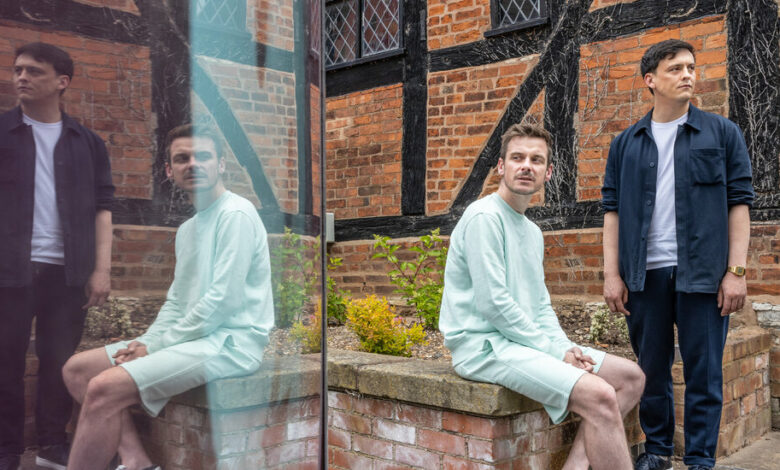How to make exciting theatre about climate change negotiations

When playwrights Joe Murphy and Joe Robertson were looking for ideas for a new production, they came across on a radio show on the negotiations that led to the Kyoto Protocol of 1997.
Some parts of the show, Robertson recalled in a recent interview, made the climax of those discussions about cutting global carbon emissions sound “like a thriller,” with politicians holding talks in locked rooms and exhausted negotiators falling asleep under their desks.
The pair thought that the groundbreaking climate agreement could be the basis for a new impactful stage production, similar to ‘The Jungle’, their hit about a refugee camp in northern France. The problem was that negotiations had dragged on for years before the agreement was reached in Kyoto in December 1997 – and that process was sometimes far from exciting. Most of the actions involved representatives from different countries arguing over the language, and even punctuation, they wanted in the protocol.
Climate negotiations “are so damn boring in a way,” Robertson said. “The challenge,” he added, “was, ‘How do we take them, put them on stage and make them dramatic?’”
The playwrights’ answer to that question is:Kyotodirected by Stephen Daldry and Justin Martin, and playing at the Royal Shakespeare Company’s Swan Theater in Stratford-upon-Avon, England, from Tuesday to July 13.
Nearly 30 years after more than 150 countries became parties to the Kyoto Protocol, which required certain Western countries to reduce their carbon emissions, climate change has become an increasingly pressing problem. But the subject is rarely discussed on theater stages.
The few successful plays that have broached the subject have often done so only tangentially, such as Duncan Macmillan’s ‘Lungs’, in which a couple considers whether to have a child and wonders how the state of the planet should inform that decision. to influence.
Macmillan said in an email that climate change was “difficult to dramatise”, not least because playwrights had to decide whether to include the science underlying the problem. “You either lose story momentum by trying to convey the science accurately, or you compromise the complexity of the science by keeping the plot moving,” he said.
Robertson and Murphy based “The Jungle” on their own experiences in a refugee camp in Calais, France, where they built a theater and staged performances until French authorities evacuated their section of the camp. For “Kyoto,” the pair had limited knowledge of climate change science or policy, so they spent months researching the negotiations, listening to recordings of the discussions and speaking to dozens of diplomats and scientists who were present.
A breakthrough came when the playwrights discovered Donald Pearlman, an American lawyer who advised Saudi Arabia and Kuwait on climate negotiations and repeatedly tried to get those countries’ representatives to delay the proceedings.
Murphy said he and Robertson became ‘obsessed with this agent of discord’ died in 2005, and spoke to his wife and son as part of their investigation. His story — Der Spiegel, the German news magazine, called Pearlman “The High Priest of the Carbon Club” — “has unlocked something dramatic for us,” Murphy said.
The playwrights made Pearlman the play’s narrator, and in “Kyoto” the audience watches the lobbyist (played by Stephen Kunken) as he tries, and ultimately fails, to disrupt the negotiations. Murphy compared Pearlman to Iago, the cunning soldier in Shakespeare’s “Othello”; there is “always emotion” when watching an antihero, he added.
Even with Pearlman as the focus, Murphy said the duo had to figure out how to make the negotiations compelling theater, and during recent rehearsals in London, the cast and creative team were still fine-tuning some of those details. While rehearsing a scene in which Pearlman taunts Raul Estrada-Oyuela (Jorge Bosch), the chairman of the negotiations, the cast laughed at Pearlman’s jokes, but afterward Daldry, the co-director, urged the actors to speed things up. “It’s the West Wing, not Ibsen,” he said.
Later, as the actors rehearsed another scene in which the negotiators received a copy of the draft agreement, Daldry suggested that the fourteen-member cast quickly skim through the documents to provide a sense of urgency. “There must be a lot of paper,” he said.
Robertson, the playwright, said the team made other choices to make the audience feel involved in the negotiations. Some theatergoers would sit among the actors around a giant table onstage, as if they were part of the discussions. Everyone in attendance would also be given a lanyard similar to the ones worn during the actual negotiations.
It was important to the playwrights that “Kyoto” highlight a moment when governments, against all odds, reached an agreement, Robertson said. “The idea that you could get so many countries to agree on something as complex as legally binding emissions targets was fascinating to us,” he added: “The impossibility of it.”
At a time when disagreement seems to be the norm, as made clear by the war in Ukraine, Murphy says it “could be a very good idea” to stage a play that shows how agreement can be achieved .
Even if the path to an agreement meant diplomats would have to spend years in closed rooms arguing over sentence structure.




